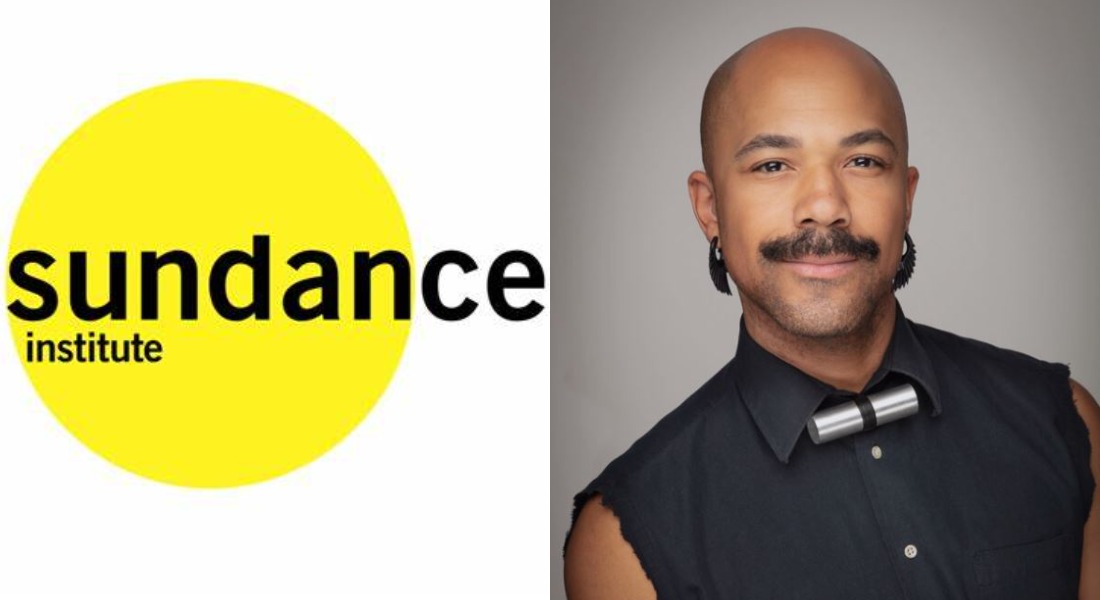LOS ANGELES: The Sundance Institute has released an independent theatre study conducted by Jesse Cameron Alick, newly appointed as the Vineyard Theater’s associate artistic director, and former creative advisor for the Institute’s theatre program, who was commissioned for the project earlier this year. Alick’s charge was to launch an in-depth study of the field and hear from theatremakers about the most urgent needs for artists and the field. The report, Emerging from the Cave: Reimagining Our Future in Theater and Live Performance, is part of the Institute’s effort to reimagine its work in the theatre and live performance field.
“We are beginning a conversation that we hope artists, funders, and organizations will continue in order to provoke new modes of support,” said Keri Putnam, CEO of the Sundance Institute, in a statement. “We understand that some of these issues are not solvable by arts organizations alone. In fact, we feel strongly that a lot of the solutions need to originate from places outside the institutions. We are inspired by the common themes, the provocations, the power of collective action that is embedded in these calls to action from across the field. We hope people will read, discuss, and engage with the conversation started in this study, presented and collected by Jesse Alick.”
Between January and April 2021, Alick interviewed more than 70 artists, administrators, donors, and leaders about their experiences during the pandemic. Specifically he looked at the learnings from the Black Lives Matter uprising and the subsequent racial equity reckoning to find out what was learned, what was lost, what the state of the industry is now, and what the field can do to emerge stronger, more equitable, and more vibrant. The study is an effort to provide a snapshot of where the field stands over a year after in-person performances were constricted as well as a chance to provide a possible compass for the future.
“When the pandemic hit, I truly didn’t know what to do,” said Alick in a statement. “I saw my industry fall apart overnight and the art I love rendered impotent as all my friends immediately went on unemployment. A way out felt impossible. But when summer hit and we poured into the streets in the Black Lives Matter protests, a conversation about the future of the field started which I found comfort and hope in. I started to listen to people much smarter than myself. With the help and support of Sundance Institute, this study is the result of that journey. It belongs to the great arts workers that I interviewed but in a very real way it also charts the way I found my way out of darkness and into possibility.”
Among the highlights of the report, Alick identified four major themes: collective leadership, holistic artistic support, digital theatre and hybrid futures, and field ideation. The study found that there is a deep skepticism on the part of artists about the commitment of institutions to addressing issues of racial equity. As Alick points out in his overview, many believe institutions are acting out of fear rather than true aspiration to change. This has led to artists, already struggling financially like never before, feeling isolated and deeply disillusioned.
On the other hand, Alick’s report also finds that those working within institutions are “deeply engaged in reevaluating themselves,” with artistic leaders speaking on the concern they have about the health and well-being of their artistic communities.
There’s also a concern, the report notes, that institutions in the U.S. and Europe have lost their identities, as they compete over the same projects and artists and effectively homogenize the field in the process. On this point, Alick notes that the definition of success has narrowed, creating a model based on a fear of failure, which in turn limits experimentation. Additionally, Alick’s report notes, American theatre has become widely perceived as a field of rules and silence rather than risk and play.
Alongside this point is the report’s note that resting curatorial decisions with single decision makers within individual institutions has led to widespread bias and racism in programming. Several institutions Alick spoke with are utilizing new models of collective leadership, including the Wilma Theater in Philadelphia, and New York City’s Movement Theatre Company and Soho Rep.
The report also found that large institutions, in pursuit of national relevance, have failed to invest deeply in their local communities and artists. While Alick acknowledges in his overview that there may never have actually been a golden age of regional theatres having had greater focus on their own communities, the important takeaway now is that this pandemic moment of reevaluation has led many institutions to turning away from their own backyards in search of bigger pursuits. Meanwhile aartists are looking for long-term commitments and investments from institutions, including fluid developmental support and full-time employment.
Significantly, Alick found a chorus of agreement that, over the last year, artists have been innovating extensively, leaving an undeniable new-media mark on the field. The exploration of digital and virtual mediums has led to an investigation of what the phrase “live performance” means exactly (not to mention whose union domain it falls in), which led interviewees to express a need for the field to have a place where big conversations can happen collectively.
Full profiles on all those interviewed, as well as the complete study, are available on the Emerging from the Cave website.


